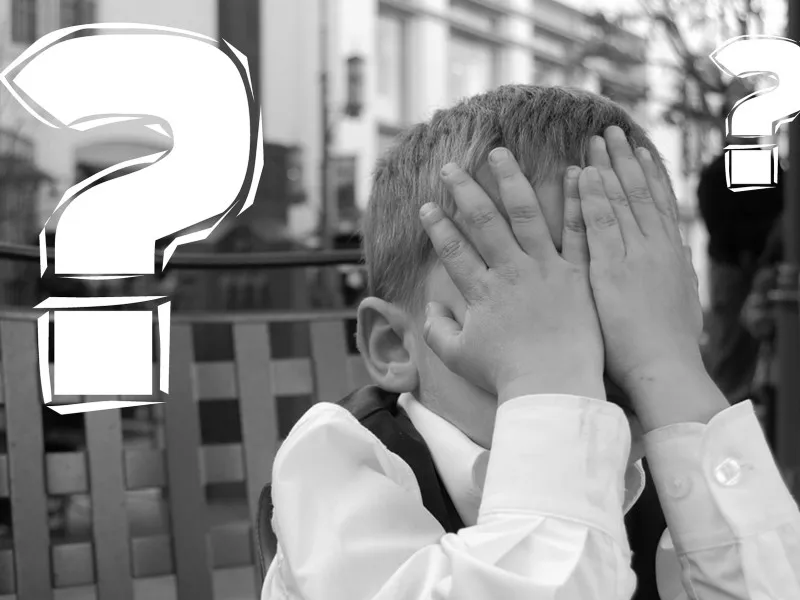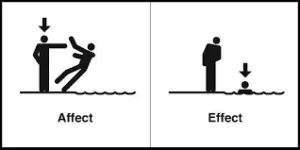Conquer grammar rules with a touch of humour: Scientell tips

Grammar. It’s a word that brings terror to the hearts of students and seasoned professionals alike.
We’ve all scratched our heads over certain grammar rules at some point, such as ‘is it which or that?’ or ‘when do I use me vs I?’
At Scientell, we take writing, editing and grammar seriously. But we also like to use humour to make grammar rules more memorable. We’ve put together our favourite amusing grammar tips and tools.
Using chocolate as a grammar tool: ‘a’ versus ‘an’.
We are often taught to use ‘a’ before words that start with consonants and ‘an’ before words that start with vowels. For example, ‘I’ve just had an idea’ and ‘I don’t have a clue.’
But this isn’t always the case. In fact, ‘a’ or ‘an’ are used before words that start with either a vowel or consonant sound.
Chocolate is a fabulous tool to help remember this rule. For example, even though M&M starts with M (consonant), it starts with the sound of the vowel ‘E’, as in ‘em and em’. So it should be an M&M instead of a M&M (although who ever wants just one M&M?).
What should you do?: Use ‘a’ before words that start with a consonant sound. Use ‘an’ before words that start with a vowel sound.
Eating grandma: the importance of correct comma use
Commas are small and therefore often forgotten, misused and misunderstood. But this tiny punctuation mark packs a hefty punch in both your written and verbal communication.
Consider going out to lunch with your grandma. When served your lunch you could say either:
‘Let’s eat grandma’
or
‘Let’s eat, grandma’.
Quite a difference, isn’t it?
Here’s another example (again using poor grandma to illustrate poor grammar) of the impact of incorrect comma use on a sentence:
‘My three favourite things are eating my grandma and not using commas.’
Common uses of commas include to:
- separate items in a series (words, phrases or numbers)
- separate independent clauses (e.g. ‘You can eat grandma, or you can eat pancakes’)
- set off introductory words, mild interjections or names at the beginning of a sentence (e.g. ‘Ben, did you eat grandma?’)
- separate interruptions in a sentence (e.g. Grandma was, I think, pretty delicious’)
- separate connective words from the rest of the sentence (e.g. ‘also’, ‘however’, ‘in fact’).
What should you do?: Double check to ensure correct use of commas. Read the sentence aloud to provide clues on where a comma is required.
How sandwiches can guide the use of ‘which’ or ‘that’
Knowing when to use ‘which’ or ‘that’ in a sentence can be confusing.
‘That’ is used to give information essential to the meaning of the sentence. In contrast, ‘which’ is used to introduce non-essential information into a sentence. This is information that may provide interesting details, but its removal won’t change the overall meaning of the sentence. This non-essential information is often separated using a comma or two.
For example:
‘Grammar provides information that helps the reader understand the sentence.’
‘Grammar, which can be tricky, is essential to good writing and editing.’
But where do the sandwiches come in?
Well, just like you can remove the crusts from your sandwich because (let’s be honest) they’re not essential to the sandwich, you can also remove the information after the word ‘which’ because it’s not essential to the sentence.
What should you do?: Use ‘that’ if the removal of the words that follow would change the meaning of the sentence. Use ‘which’ if the words that follow, which may be unnecessary, can be removed without changing the meaning of the sentence.
Using sibling rivalry to explain the difference between ‘affect’ and ‘effect’.
Those of us ‘lucky’ enough to have an older sibling are already well equipped to understand when to use ‘affect’ or ‘effect’, even if we don’t realise it.
This image really says it all:

Here, the older sibling (left) pushes you (right) into the pool.
But how does this help?
Most of the time, ‘affect’ is a verb and ‘effect’ is a noun. Affect means to impact or change. Effect is the result of a change.
So, for the above scenario, your older sibling affects you by pushing you into the pool. You experience the cold and wet effects of your older sibling pushing you. Your sibling performed an action, which signals the use of a verb (affect); the result (effect) of that action is your wetness (noun).
What should you do?: Use ‘affect’ (verb) when performing an action. Use ‘effect’ (noun) for the result of an action.
Grammar doesn’t have to be boring or difficult. A touch of humour (or food references) can go a long way to help you remember tricky rules.
Still need help with writing or editing your science, environment or technology stories?
Author:
Date Posted:
March 12, 2022
